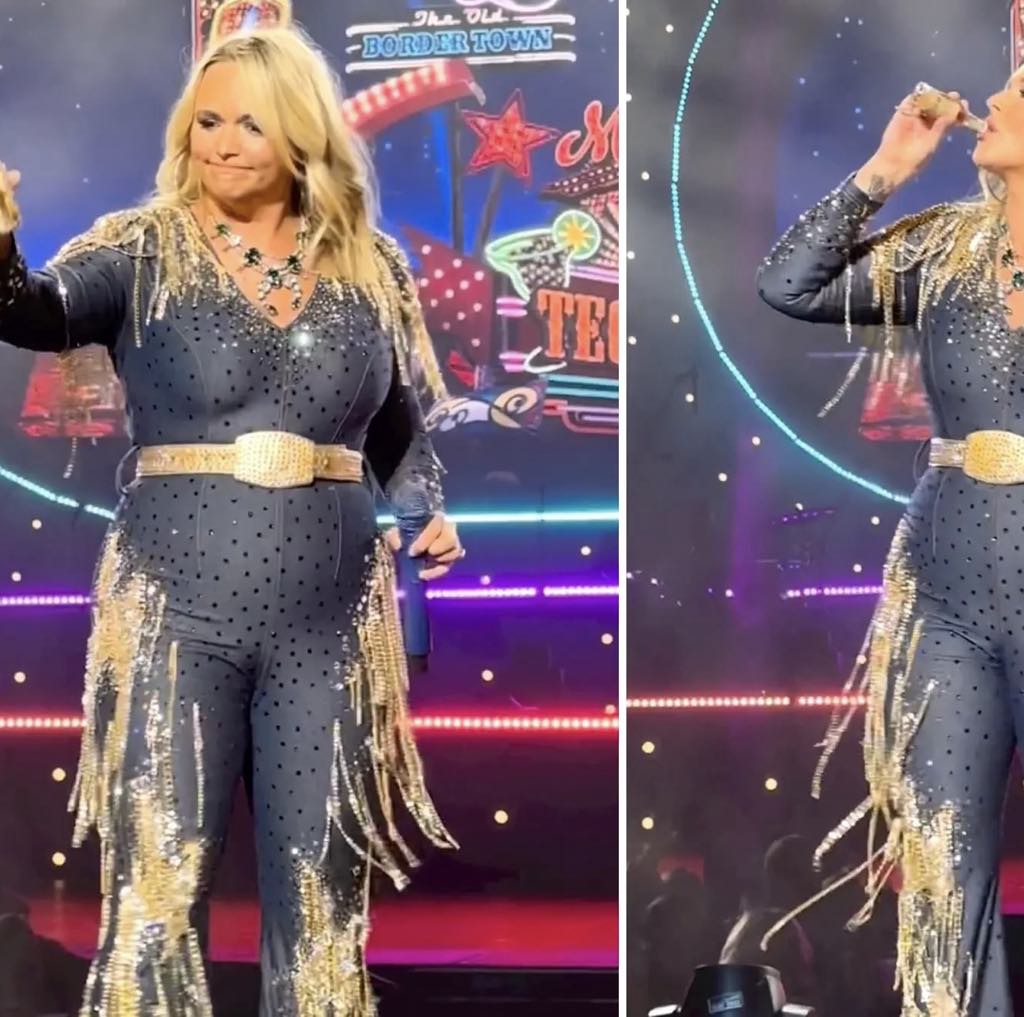Miranda Lambert has found herself at the center of controversy following an incident at one of her recent concerts, but it seems the country music star has no regrets. Currently headlining a residency in Las Vegas, Lambert faced backlash after abruptly stopping her performance to call out a fan who was taking selfies during the show.
The incident occurred while Lambert was performing her emotional ballad, “Tin Man.” According to reports, she noticed a fan taking a selfie and decided to address it on the spot. Stopping mid-song, she directed her attention to the fan in question and made her displeasure known to the entire audience. “I’m going to stop for a minute,” Lambert said. She then gestured toward the fan and added, “These girls are more focused on taking selfies than listening to the song. I’m sorry, but it’s really bothering me. Tonight, we’re here to enjoy some country music. I’m singing real country music.”

The fan reportedly put her phone away after the interruption, and Lambert resumed her performance. Some attendees cheered in support of the singer’s actions, appreciating her effort to preserve the concert’s atmosphere. However, the incident quickly became a topic of heated debate online, with many questioning whether Lambert’s approach was appropriate.
The controversy didn’t end there. At another performance during her Vegas residency, Lambert spotted a fan wearing a t-shirt that read, “Shoot tequila, not selfies.” She took the opportunity to highlight the shirt to the crowd, saying, “I didn’t make it up; she did!” The comment appeared to further divide her audience. While some applauded the lighthearted acknowledgment, others felt it was another unnecessary dig at fans who enjoy documenting their experiences.
Critics of Lambert’s actions have expressed disappointment, suggesting that the singer could have handled the situation more graciously. One social media user commented, “How to humiliate and shame your devoted fans who paid to see you. She could have made a joke, taken the selfie with them, and then encouraged everyone to live in the moment. Not cool.” Another user echoed similar sentiments, pointing out that concerts are meant to create memories. “Taking a photo to capture that memory doesn’t take away from the experience—it enhances it.”
The fan who was publicly scolded by Lambert has since spoken out about the experience. Adela Calin, the woman who took the selfie, explained that the entire process took no more than 30 seconds and that they had planned to sit down immediately afterward. However, Lambert interrupted before they could finish. Calin described feeling “appalled” and humiliated by the singer’s actions, comparing it to being reprimanded by a schoolteacher. “It felt like I was back in school, being told to sit down and stop misbehaving,” she said. “She made us feel like we were childish and conceited, but we’re grown women in our 30s to 60s who just wanted to capture a moment.”
Supporters of Calin argue that Lambert’s reaction was excessive and unkind, particularly given the loyalty and excitement that fans bring to her concerts. For many, attending a concert is a special occasion, and taking photos is a natural part of preserving those memories. Critics have also pointed out that, in the age of social media, taking selfies and sharing experiences online is a common practice that artists should expect.
On the other hand, some fans continue to defend Lambert’s stance, arguing that excessive phone use at concerts can detract from the live music experience. “We’ve all seen people glued to their screens instead of enjoying the show. I think Miranda was just trying to remind everyone to be present in the moment,” one fan wrote online.
The debate underscores a broader cultural conversation about phone use at live events. While some believe that phones distract from the authenticity of the experience, others view them as tools to enhance and share it. Artists like Adele, Jack White, and Bruno Mars have previously implemented strict no-phone policies at their concerts, hoping to encourage attendees to focus on the performance rather than their screens. However, Lambert’s approach of directly addressing the issue during a live show has drawn mixed reactions.
For Calin and her friends, the memory of the concert has been forever altered by the incident. “We were excited to see Miranda and hear her perform, but this left a sour taste in our mouths,” Calin said. “We weren’t trying to be disrespectful. We love her music and just wanted a picture to remember the night.”
As the controversy continues to unfold, it raises questions about the balance between artists’ expectations and fans’ desires to document their experiences. Lambert’s unapologetic attitude has polarized opinions, leaving her supporters and critics firmly divided. Some argue that her bluntness is part of her charm, while others feel it alienates the very fans who contribute to her success.
Ultimately, the incident serves as a reminder of the evolving dynamics between performers and audiences in the digital age. Whether Lambert’s approach will have lasting repercussions for her career remains to be seen, but one thing is clear: her decision to call out a fan has sparked a conversation that extends far beyond the concert hall.





